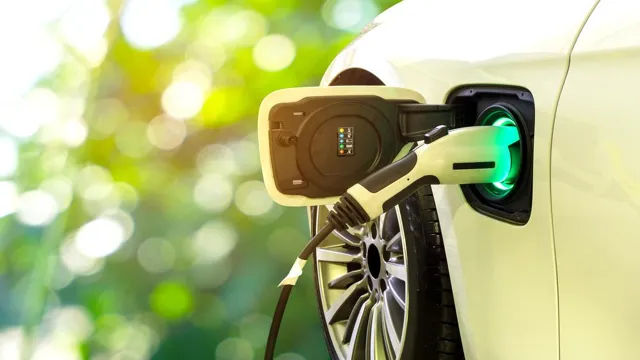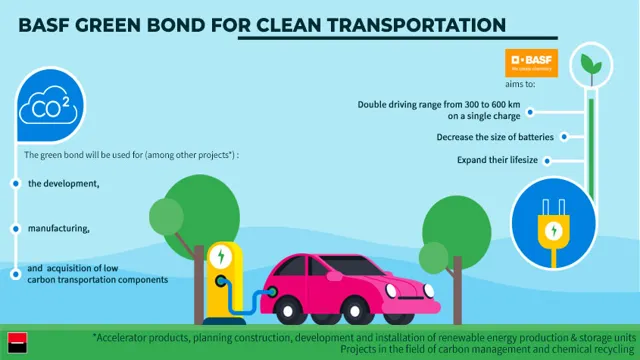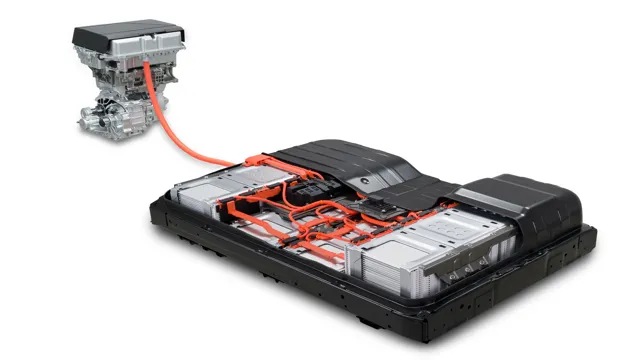Shocking Truth Revealed: The Risks and Safety Measures of Electric Car Batteries in Crashes
Have you ever wondered what happens to electric car batteries during a car crash? With more and more electric vehicles hitting the road, concerns about their safety in the event of an accident are on the rise. Electric car batteries are considered to be the heart of an electric vehicle, but unlike traditional vehicles, they come with their own set of safety concerns. In this blog, we will discuss the safety measures put in place, as well as the potential risks of electric car batteries in crashes and how they differ from traditional gasoline-powered vehicles.
By the end of this post, you’ll have a better understanding of the safety features surrounding electric cars and whether they are safe on the road. So, let’s dig in!
Safety Concerns
If you’re wondering whether electric car batteries are dangerous in a crash, the short answer is yes. While battery fires are rare, they can happen in the event of a severe impact that causes the battery to rupture or short circuit. However, it’s worth noting that the same risks exist with traditional gasoline-powered vehicles, which also carry flammable liquids that can ignite during a collision.
Despite these safety concerns, electric vehicles still have a strong safety record overall, and there are important advancements being made all the time in battery technology and safety features designed to protect drivers and passengers. So while it’s important to be aware of the potential risks, it shouldn’t dissuade you from choosing an electric car if it’s the right fit for you and your lifestyle.
Battery Fires
Battery fires are a serious concern for anyone who uses electronic devices powered by lithium-ion batteries. These fires can occur due to a variety of reasons, including overheating, physical damage, or manufacturing defects. While rare, these incidents can be dangerous and cause significant damage to property and even human life.
It’s crucial to take precautions when using batteries to prevent fires, such as not exposing them to extreme temperatures, avoiding overcharging, and using only reputable brands. Simple steps like unplugging devices when not in use and storing batteries in a cool, dry place can also help reduce the risk of a battery fire. When it comes to electronic devices, safety should always be a top priority, and taking these precautions can help ensure the safety of both you and your property.

Impact on Passengers
As a passenger, safety should always be a top priority. With new technologies such as artificial intelligence beginning to be implemented in the aviation industry, safety concerns may arise for some passengers. However, it’s important to note that these technologies are being implemented to enhance safety measures, not replace them.
AI can assist pilots in detecting issues and making more informed decisions. Think of it like having a highly advanced co-pilot in the cockpit. Just like how you would trust your co-pilot, you can trust that AI is being introduced with the intention of keeping you safe during your flight.
The aviation industry is constantly evolving to ensure the safety and comfort of all passengers.
Crash Testing
Are electric car batteries dangerous in a crash? This is a common question among drivers considering making the switch to an electric car. While there is a potential for danger in any car crash, the risk is not necessarily greater with an electric vehicle. In fact, many electric cars are designed with safety in mind, including their battery systems.
These systems are often located in the car’s floor and surrounded by a strong protective barrier. Additionally, some electric cars have a system that automatically shuts off the battery in the event of a collision. Of course, there is always the risk of the battery catching fire or rupturing, but this risk is present with any type of car battery, including traditional gasoline engines.
Overall, electric car batteries are not inherently more dangerous in a crash than other car components, and the potential for danger can be minimized through proper design and safety protocols.
Regulations
When it comes to ensuring vehicle safety, regulations are of paramount importance. One of the key factors that determine the safety of a vehicle is how it performs in crash tests. Essentially, a crash test is a controlled collision that assesses the ability of a car to protect its occupants in the event of a crash.
Crash tests enable manufacturers to identify potential weaknesses in their designs and make improvements to ensure that their vehicles meet regulatory standards. These tests involve using specially designed dummies that simulate human bodies and measure the forces and pressures that are exerted during a crash. The data collected from crash tests is used to develop safety ratings for different vehicles, which provide consumers with important information to make informed decisions about their purchases.
In essence, the regulations ensure that cars are built to keep people safe.
Battery Protection Design
Battery protection design is a crucial aspect of creating safe and reliable electric vehicles. Crash testing is an integral part of this design process, as it helps to ensure that the battery and its protective features can withstand impact. These tests simulate various crash scenarios, including frontal, side, and rear impacts, to evaluate the effectiveness of the battery’s protective features.
For example, some designs use a safety cage to protect the battery from damage or a fire-resistant casing to prevent internal short circuits. By performing rigorous crash testing, manufacturers can identify and address any potential weaknesses in their battery protection design, ensuring that their electric vehicles are safe for drivers and passengers. So, this is how the battery protection design ensures the safety of electric vehicles on the road.
Crash Simulation Results
Crash testing is an essential element in the development of any vehicle, as it helps to identify safety concerns and improve overall performance in the event of an accident. In recent years, crash simulation technology has become increasingly popular in the auto industry, as it allows engineers to run virtual tests and gather data on a car’s performance without the need for physical testing. Utilizing complex algorithms and advanced software, these simulations can accurately predict the behavior of a vehicle during a crash, from the effectiveness of airbags to the distribution of forces across the frame.
By analyzing the results of these simulations, manufacturers can fine-tune their designs and ensure that their vehicles meet the highest safety standards. Crash simulation technology is a valuable tool for any automaker looking to optimize safety and provide their customers with the peace of mind that comes with driving a secure vehicle.
Real-World Incidents
One question many people have when considering electric cars is whether the batteries are dangerous in a crash. While it’s true that the nature of any high-voltage battery poses some risk, the technology and design of electric car batteries are constantly improving to address potential safety concerns. In fact, studies have shown that electric cars are just as safe as traditional gas-powered vehicles, if not even safer in some respects.
The batteries are made to withstand impacts and are housed in a reinforced compartment, with special safety features like automatic disconnect of power in case of an accident. It’s also important to note that incidents involving electric car battery fires are extremely rare. While there is still some room for improvement, it’s safe to say that electric cars are a viable and safe option for drivers.
Historical Examples
Historical Examples Real-world incidents show how unpredictable events can have devastating consequences. In 1977, a civilian-crewed aircraft crashed into a mountain in Tenerife, resulting in the deadliest aviation disaster in history. The crash was caused by a miscommunication between the air traffic control tower and the pilot, who proceeded to take off without proper clearance.
The result was a catastrophic collision between two airplanes on the runway, killing over 500 people. The incident sparked sweeping changes to air traffic control procedures and communication protocols to prevent similar tragedies from happening in the future. Another example is the Deepwater Horizon oil spill in 2010, which resulted in the largest oil spill in US history and had long-lasting environmental and economic consequences in the Gulf of Mexico.
This incident was caused by a series of failures in safety procedures and equipment, leading to millions of gallons of crude oil spilling into the ocean. These two examples demonstrate the importance of comprehensive risk management strategies and the need for continual improvement to prevent potential disasters.
Recent Cases
Real-World Incidents When it comes to real-world incidents, there have been several notable cases in recent years. One such incident is the massive Equifax data breach that occurred in 2017, where the personal information of 143 million people was compromised. Another case is the Cambridge Analytica scandal, where the data of millions of Facebook users was harvested without their consent.
These incidents highlight the importance of data protection and the need for stricter regulations. It is essential to understand the potential consequences of data breaches and the damage they can cause to individuals and businesses alike. With cybercrime on the rise, it is more important than ever to be vigilant and take measures to protect your data.
Whether it’s using stronger passwords or employing advanced security measures, we must all do our part to keep our information safe from prying eyes.
Conclusion
In conclusion, electric car batteries are no more inherently dangerous in a crash than the gasoline tank in a traditional car. While there are risks involved with any type of vehicle collision, modern safety features and strict regulations ensure that electric car batteries are engineered to withstand impact and prevent fires. So, the next time someone tries to corner you with the “are electric car batteries dangerous in a crash” question, you can confidently tell them that the only thing dangerous is their outdated and unfounded assumptions.
“
FAQs
How do electric car batteries react in a crash?
Electric car batteries are designed with safety features to minimize the risk of fire or explosion in a crash. The battery is typically placed in a sturdy, protected area of the car and surrounded by a crash-resistant shell. Additionally, electric cars have sensors that can detect an impact and automatically disconnect the battery to prevent any further damage or risk of fire.
Are electric car batteries more dangerous than traditional gasoline engines in a crash?
There is no clear answer to this question as both gasoline engines and electric car batteries pose different risks in a crash. However, electric car batteries are designed with safety features to minimize the risk of a fire or explosion, whereas gasoline engines are more likely to ignite and spread flames.
Can electric car batteries cause harm to passengers in a crash?
While electric car batteries are designed with safety features to minimize the risk of fire or explosion, they can still pose a risk of injury to passengers in a crash. The batteries are heavier than traditional car batteries and can cause more damage upon impact. However, electric cars have advanced safety features, including airbags and seat belts, that can protect passengers from harm.
What should I do if my electric car is involved in a crash?
In the event of a crash involving an electric car, the first priority is to ensure the safety of all passengers involved. If the car is drivable, move it to a safe location and contact emergency services if necessary. If the battery is damaged, do not attempt to move or touch it, and wait for trained professionals to safely handle the situation.






